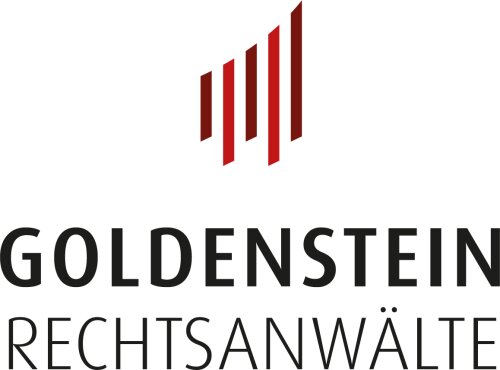Best Oil, Gas & Energy Lawyers in Germany
Share your needs with us, get contacted by law firms.
Free. Takes 2 min.
Or refine your search by selecting a city:
List of the best lawyers in Germany

About Oil, Gas & Energy Law in Germany
Germany's energy sector is central to its economic framework, with a significant focus on sustainability and renewable resources. While heavily investing in its Energiewende, a transition to renewable energy sources, Germany also maintains vital operations in oil and gas which contribute to its energy supply. The legal landscape in this area is complex, encompassing regulations on exploration, production, and environmental protection. Legal frameworks also address the challenges of balancing energy security, economic competitiveness, and environmental responsibility.
Why You May Need a Lawyer
In the field of Oil, Gas & Energy, legal advice is often necessary due to the intricate regulatory environment. Common situations where individuals or companies may require legal help include:
- Compliance with environmental regulations and standards.
- Negotiating contracts for supply, distribution, or joint ventures.
- Guidance on licensing and permitting for exploration and extraction projects.
- Resolving disputes involving land rights or mineral extraction royalties.
- Advising on mergers, acquisitions, or asset deals in the energy sector.
- Managing risk and liability issues related to energy projects.
Local Laws Overview
Germany's legal framework for the Oil, Gas & Energy sector is shaped by a mix of national and EU regulations. Key aspects include:
- Renewable Energy Act (EEG): Encourages the growth of renewable energy sources through subsidies and guaranteed access to the electricity grid.
- Federal Mining Act: Regulates the extraction of mineral resources, including oil and gas, with stringent requirements on environmental protection.
- Energy Industry Act (EnWG): Governs the supply of electricity and gas, focusing on ensuring reliable energy supply and protecting consumer interests.
- Environmental Impact Assessment Act: Requires mandatory assessments for projects likely to affect the environment significantly.
- Climate Protection Program: Aims at reducing greenhouse gas emissions with specific targets set for the energy sector.
Frequently Asked Questions
How does Germany ensure environmental protection in the energy sector?
Germany enforces strict environmental regulations, including mandatory environmental impact assessments and adherence to EU environmental standards.
What is Energiewende?
Energiewende is Germany's initiative to transition to a more sustainable energy system, focusing on reducing fossil fuel use and increasing renewable energy consumption.
Is fracking allowed in Germany?
Fracking is heavily restricted in Germany. Legislation only allows it under strict conditions, mainly for scientific or specific non-commercial purposes.
Are there incentives for investing in renewable energy in Germany?
Yes, Germany's Renewable Energy Act provides various financial incentives for renewable energy projects, including feed-in tariffs and tax benefits.
What is the role of the Federal Network Agency?
The Federal Network Agency oversees the regulation of Germany's energy infrastructure, ensuring fair competition and compliance with legal standards.
How can I dispute a land rights issue involving energy projects?
Consult a lawyer experienced in energy law to assess your case, as land rights disputes often involve complex legal and regulatory frameworks.
What should I consider in energy supply contracts?
Key considerations include pricing mechanisms, compliance with regulatory requirements, supply security, liabilities, and termination clauses.
Are mergers and acquisitions common in Germany's energy sector?
Yes, M&A activities are quite common as companies seek to expand market share or diversify energy sources. Legal expertise is crucial in these transactions.
What are the penalties for non-compliance with energy regulations?
Penalties can range from fines to restrictions on operations. Serious violations can lead to legal actions or revocation of permits.
How can I stay updated on changes in energy law?
Regularly consult legal updates from law firms specializing in energy or follow official communications from relevant governmental agencies.
Additional Resources
Here are some resources that may be helpful for anyone seeking information or legal advice on Oil, Gas & Energy in Germany:
- Federal Ministry for Economic Affairs and Energy (BMWi)
- German Energy Agency (dena)
- Bundesnetzagentur (Federal Network Agency)
- German Renewable Energy Federation (BEE)
- Chambers of Industry and Commerce in your region
Next Steps
If you need legal assistance in the Oil, Gas & Energy sector in Germany, consider the following steps:
- Identify specific legal issues you need help with, such as compliance, contracts, or disputes.
- Research and select a law firm or legal advisor specializing in energy law with experience in the German market.
- Prepare documentation and detailed descriptions of your situation to facilitate a more effective legal consultation.
- Schedule consultations to get insights from multiple experts before deciding on the right legal path.
These steps can help ensure you receive the most precise advice tailored to your specific needs in the dynamic energy sector.
Lawzana helps you find the best lawyers and law firms in Germany through a curated and pre-screened list of qualified legal professionals. Our platform offers rankings and detailed profiles of attorneys and law firms, allowing you to compare based on practice areas, including Oil, Gas & Energy, experience, and client feedback.
Each profile includes a description of the firm's areas of practice, client reviews, team members and partners, year of establishment, spoken languages, office locations, contact information, social media presence, and any published articles or resources. Most firms on our platform speak English and are experienced in both local and international legal matters.
Get a quote from top-rated law firms in Germany — quickly, securely, and without unnecessary hassle.
Disclaimer:
The information provided on this page is for general informational purposes only and does not constitute legal advice. While we strive to ensure the accuracy and relevance of the content, legal information may change over time, and interpretations of the law can vary. You should always consult with a qualified legal professional for advice specific to your situation.
We disclaim all liability for actions taken or not taken based on the content of this page. If you believe any information is incorrect or outdated, please contact us, and we will review and update it where appropriate.
Browse oil, gas & energy law firms by city in Germany
Refine your search by selecting a city.
















